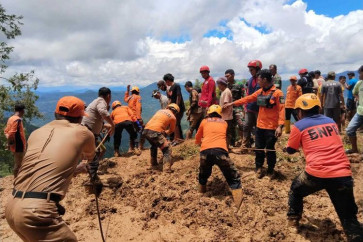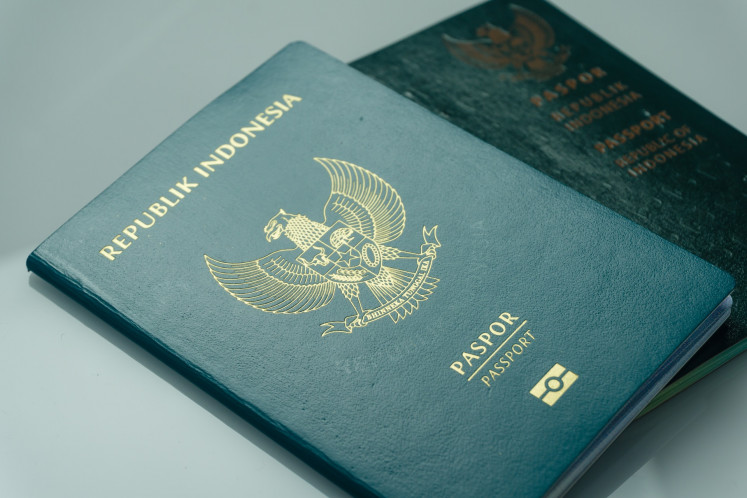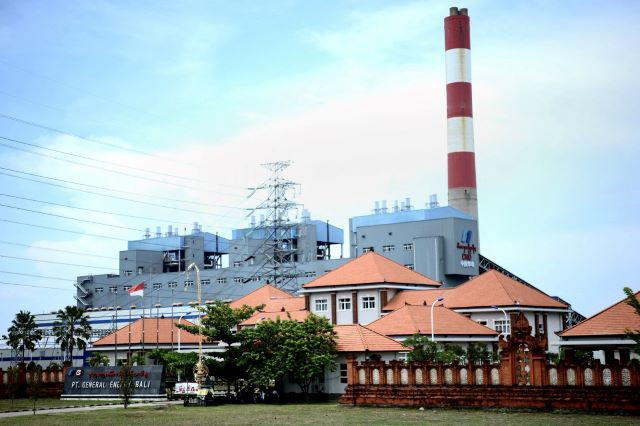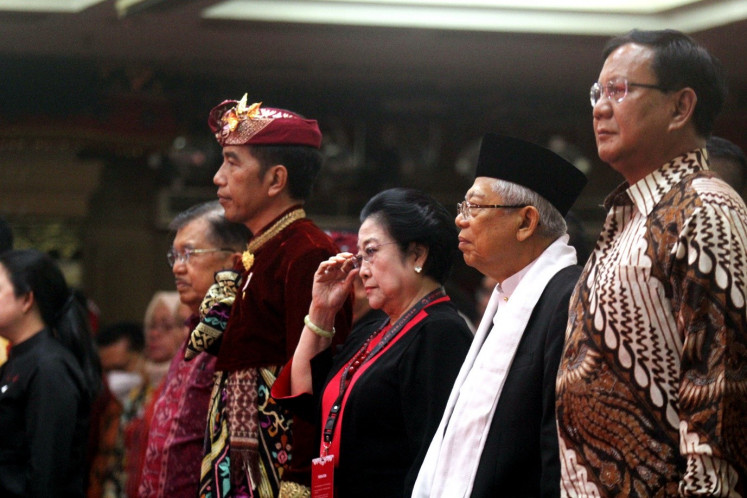Indonesia to launch three major deep-sea expeditions
Indonesia will this year launch three major oceanic expeditions exploring the depths of the archipelago’s waters to study marine creatures and the movement of underwater plates
Change Size

I
ndonesia will this year launch three major oceanic expeditions exploring the depths of the archipelago’s waters to study marine creatures and the movement of underwater plates.
Head of the Maritime Affairs and Fisheries Ministry’s research division (BRKP) Gellwynn Jusuf said the expeditions would use three ships: the Baruna Jaya III, Baruna Jaya IV, and Baruna Jaya VIII.
“Baruna Jaya VIII, which belongs to LIPI [the Indonesian Institute of Sciences], will be used to conduct research in the Arafura and Timor seas with scientists from Australia and Timor Leste,” Gellwyn said.
Meanwhile, scientists aboard the Baruna Jaya III ship, which belongs to the Technology Application
and Assessment Agency (BPPT), will work together with the First Institute of Oceanography from China in a project called the Java Up-welling Cruises, which will be conducted in the Indian Ocean, south
of Java.
“The Baruna Jaya IV, which belongs to BPPT, will pair with a ship from the United States, the Okeanos Explorer in the Sulawesi sea to monitor programs such as hydrothermal vents and marine biodiversity” Gellwyn said.
Zainal Arifin, an oceanographic researcher from LIPI, said the Baruna Jaya VIII would depart from Kupang, East Nusa Tenggara, on May 10.
“Those involved will include around 22 researchers and technicians from Indonesia, three researchers from Australia and four from Timor Leste. This is the first time the three nations have joined to conduct research in a region that is indeed important,” Zainal said.
The expeditions will investigate the country’s chemical oceanography, marine pollution, fishery productivity, and biodiversity.
“The area is very rich in marine life, the Timor sea is a corridor for migrating whales, dolphins and dugongs,” Zainal said.
The project, hosted by the BRKP, is dubbed the Arafura and Timor Seas Expert Forum.
Budi Sulistyo, the director for BRKP’s research center for maritime territories and non-living resources, said the research project involving Baruna Jaya IV and the US’s Okeanos Explorer would take place in the Sangihe Talaud area.
“[The area was chosen] because it has an underwater volcano, and it is also deep sea,” he said.
According to Budi, the project would explore aspects such as the volcano and hydrothermal vents by taking into account the area’s morphology, and the area’s deep-sea life.
“For example, the hydrothermal vents have very high temperatures, and apparently a prawn-like creature is able to live in temperatures of 400 degrees Celsius. If you imagine, frying a prawn, you only need 100 degrees,” he said.
Budi said such facts could be useful for further researches.
The activity of the underwater volcano in Sangihe Talaud could also indicate the activity of tectonic plates in the area, he said.
Scientists, and even the public, could also benefit from the technology the expeditions will use called Remotely Operated Underwater Vehicles, or ROV, which can record activity as deep as 4,000 meters below sea level, Budi added.
The recording of such activities could be viewed in high-definition live from the Exploration Common Center in North Jakarta.
Partnerships with researchers from neighboring countries and regions is key according to Hery.
“Marine issues are dynamic. [Researchers from outside Indonesia] would want to know what the effects would be if the marine conditions here is changing. We too would want data from America’s Pacific, because we cannot fence the sea. The sea, like the atmosphere, is very dynamic,” he said.
The three expeditions will be launched on the back of the eighth summit of the Intergovernmental Oceanographic Commission (IOC) Sub-Commission for the Western Pacific (Westpac-VIII), which will run from May 10 to May 12 in Bali.
Thirteen countries will take part in the meeting to discuss programs and projects regarding marine science, marine monitoring and capacity increasing for communities’ understanding of the sea.









